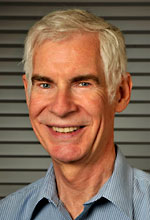 |

|
 |
MIT's Nigel Wilson |
|
Improving performance of computers and communications technologies are now starting to have a significant impact on the urban public transport industry. Automatic data collection systems including automatic vehicle location systems, automatic passenger counting systems, advanced passenger information systems and electronic fare payment and ticketing systems are becoming ubiquitous in large systems and are having an impact on the quality and availability of information for service and operations planning, controlling the service and measuring the resultant service quality delivered to passengers. While the impacts of these advances are already apparent in many systems, there is the potential for much deeper impact in the future. Technology continues to improve across the board and will offer opportunities to develop and apply more ambitious models to assist in many facets of the performance of public transport systems. Traditional models of the inter-relationships between service planning, operations control and passenger information, for example, have been based largely on the independence of these functions one from another. So the service plan has largely driven both the operations control and passenger information functions in most operating agencies, simplifying these aspects of the system. In the future, public transport systems may be able to take advantage of improved information and better communication between operating personnel, agency managers and passengers which will enable a rethinking of these inter-relationships. This seminar will examine current public transport industry practice in this arena and discuss the potential for future enhancement of these individual public transport agency functions as well as their inter-relationships.
Dr. Nigel Wilson is a professor in the Department of Civil and Environmental Engineering at the Massachusetts Institute of Technology. He is an internationally renowned expert in public transportation, transportation system design, and new transportation systems.
April 8, 2010
|

